Did you know that exchanging money at airports can cost you up to 15% more than at local banks or exchange bureaus? This is just one of the many financial pitfalls travelers face when visiting a new country. Understanding how to manage your money efficiently can make or break your trip.
In this guide, we’ll walk you through everything you need to know about currencies and payments in Rwanda. From the best ways to exchange your cash to avoiding hidden fees on card transactions, we’ve got you covered. Whether you prefer using a credit card or carrying local currency, we’ll help you plan your spending wisely.
We’ll also dive into the importance of checking the mid-market exchange rate before converting your money. This ensures you get the best value for your dollar. Plus, we’ll share tips on using ATMs and travel cards to minimize fees and maximize convenience.
By the end of this guide, you’ll feel confident managing your finances during your trip. Let’s get started!
Understanding Currency Exchange in Rwanda
Managing your money abroad starts with understanding how currency exchange works. Whether you’re using cash or a card, knowing the basics can save you time and money. Let’s break down the essentials to help you make informed decisions.
Mid-Market Exchange Rate Explained
The mid-market exchange rate is the rate banks and major financial services use for global transactions. It’s the fairest rate you can get, as it doesn’t include markups or fees. However, when you exchange cash at a counter, the rate often includes a markup, which can increase your costs.
To ensure you’re getting a fair deal, use the mid-market rate as a benchmark. You can check the live USD/RWF rate on reliable currency conversion sites. This way, you’ll know if the rate you’re offered is reasonable.
Timing Your Currency Exchange
Timing is everything when it comes to exchanging money. Rates fluctuate daily due to economic and market factors. Exchanging your currency in advance of your trip can help you lock in a favorable rate.
Monitor the exchange rate online to spot the best time to convert your money. Some sites even allow you to set up alerts for rate changes. This proactive approach can save you money and reduce stress during your travels.
| Exchange Option | Pros | Cons |
|---|---|---|
| Banks | Secure, reliable rates | May have higher fees |
| Exchange Counters | Convenient, quick | Often include markups |
| Online Services | Competitive rates, easy to track | Requires planning in advance |
By understanding these factors, you can avoid unnecessary charges and make the most of your spending. Whether you’re using a credit card or carrying local currency, a bit of research goes a long way.
Planning your finances before your trip can save you both time and money. Exchanging currency in advance offers several advantages, from better rates to fewer fees. By securing your funds before departure, you can focus on enjoying your journey without financial stress.
Cost Efficiency and Better Rates
Exchanging currency before your trip ensures you get the best possible rates. Airport exchanges often charge higher fees and offer less favorable rates due to limited competition. By purchasing Rwandan Franc in advance, you can lock in a better exchange rate and avoid unnecessary markups.
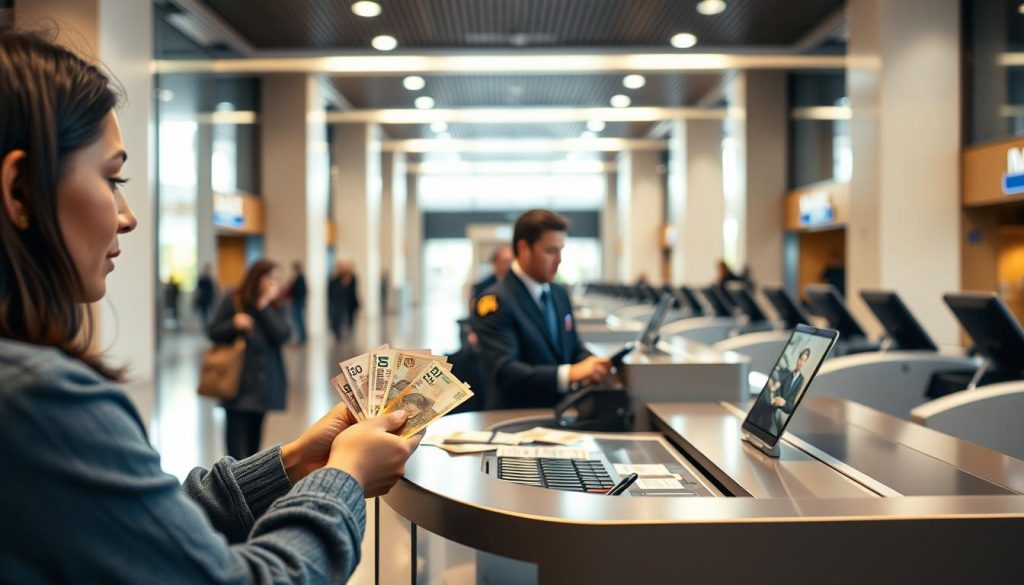
This approach also minimizes transaction fees that can add up during your travels. For example, using acredit cardabroad often incurs foreign transaction fees. Carrying local cash reduces reliance on cards and helps you stay within budget.
Comparison of Exchange Options
Here’s a quick comparison of pre-travel and on-arrival exchange rates:
| Exchange Option | Pros | Cons |
|---|---|---|
| Pre-Travel Exchange | Better rates, lower fees | Requires planning in advance |
| On-Arrival Exchange | Convenient | Higher fees, less favorable rates |
By exchanging currency before your trip, you can allocate more funds to experiences like dining, shopping, or tours. This proactive approach also saves you time and stress upon arrival, allowing you to start your adventure smoothly.
Planning ahead ensures you’re financially prepared for your trip. Whether you’re usingcashor acard, advance preparation maximizes your spending power and enhances your travel experience.
Tips for Exchanging Money in Rwanda
Avoiding common pitfalls when exchanging currency can save you a lot during your trip. Airport exchanges may seem convenient, but they often come with higher fees and less favorable rates. Instead, focus on local providers and ATMs for better deals.
How to Avoid Airport Exchange Pitfalls
Airport currency exchanges are known for their captive market pricing. They often charge higher fees and offer poor exchange rates. To avoid these costs, plan ahead and exchange your money before your trip or use local providers upon arrival.
- Check the mid-market exchange rate to know the fair value of your currency.
- Avoid dynamic currency conversion by ensuring transactions are charged in Rwandan Franc.
- Keep track of receipts to verify correct charges.
Using Local Providers and ATMs
Local exchange providers and ATMs in cities like Kigali usually offer competitive rates. Here’s how to make the most of them:
- Use ATMs in major cities for direct withdrawals in Rwandan Franc.
- Compare rates at local banks and exchange bureaus for the best deal.
- Consider using a travel money card to reduce fees and enjoy better exchange practices.
By following these tips, you can save money and focus on enjoying your trip. Planning ahead ensures you’re financially prepared and stress-free.
Payment Methods in Rwanda: Cash vs Card
Balancing cash and card payments ensures flexibility and convenience during your travels. Knowing when to use each method can save you time and money while enhancing your experience. Let’s explore the benefits of both options and how to use them effectively.
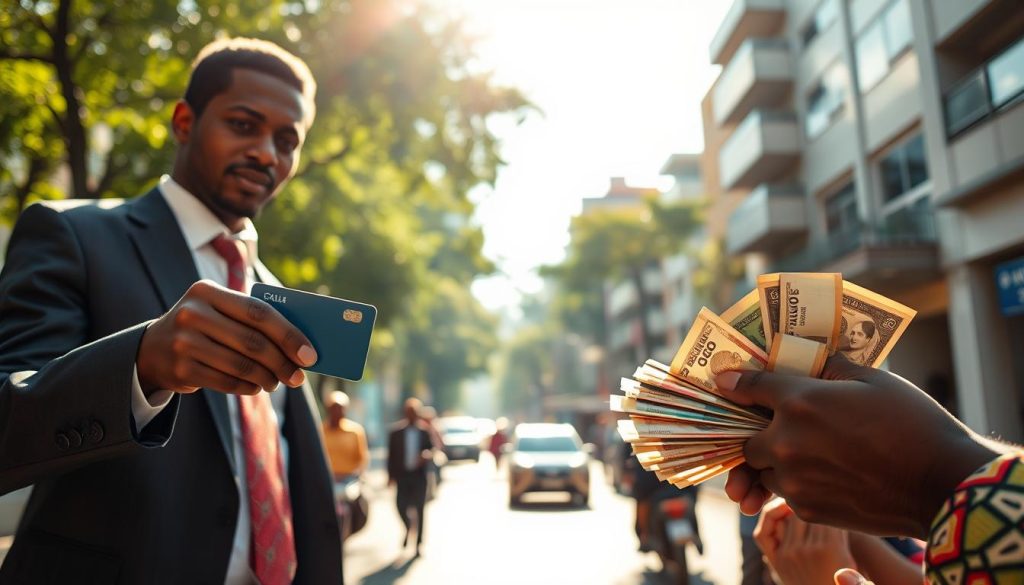
When Cash is Essential
Carrying local currency is crucial for small purchases and tipping. In local markets, street vendors, and rural areas, cash is often the only accepted payment method. It’s also ideal for small transactions like buying snacks or paying for transportation.
Having cash on hand ensures you’re prepared for situations where cards aren’t accepted. For example, many smaller restaurants and shops prefer cash. It’s also useful for tipping guides, drivers, or hotel staff, as small amounts are easier to handle in cash.
Advantages of Card Payments
Card payments are becoming increasingly popular in urban centers. They’re convenient for high-value transactions like hotel stays or dining at upscale restaurants. Many establishments in cities accept credit and debit cards, offering a secure and hassle-free way to pay.
Using a card also reduces the need to carry large amounts of cash, enhancing your security. Contactless payments are widely available, making transactions quick and easy. Just make sure your card transactions are processed in the local currency to avoid extra fees.
For emergencies, having both cash and card options is essential. ATMs are available in major cities, but it’s advisable to withdraw cash in advance. This ensures you’re covered in areas with limited access to banking services.
By balancing cash and card payments, you can enjoy a seamless and stress-free trip. Plan ahead, and you’ll be ready for any situation that arises.
Rwanda: Ultimate Travelers Guide to Currencies & Payments Strategies
Planning your payment options before your trip can make your journey smoother and stress-free. Having multiple ways to pay ensures you’re prepared for any situation, whether it’s a small purchase or an unexpected expense. Let’s explore how to plan your payments effectively.
Why Multiple Payment Options Matter
Carrying both cash and a card gives you flexibility. Cash is essential for small vendors and rural areas, while cards are convenient for larger purchases. A travel money card can simplify your payments and reduce fees.
Here’s why having multiple options is crucial:
- It helps you avoid being stranded if one payment method fails.
- You can take advantage of better exchange rates with travel cards.
- It reduces the risk of overspending by setting limits on your card.
Budgeting for Routine and Unexpected Expenses
Creating a daily budget ensures you stay on track. Allocate funds for meals, transportation, and activities. Don’t forget to set aside some money for emergencies.
Researching fees and provider policies before you travel can save you money. For example, some cards charge foreign transaction fees, while others offer free ATM withdrawals. Knowing these details helps you choose the best option.
Combining Cash and Card Use
Using a mix of cash and cards optimizes your spending. Withdraw cash in advance for small expenses and use your card for larger purchases. This approach minimizes fees and keeps your money secure.
Here are some tips for combining both:
- Use ATMs in major cities for better rates and lower fees.
- Keep small amounts of cash for tipping and small purchases.
- Monitor your card transactions to avoid overspending.
By planning your payment options, you can enjoy a stress-free trip. Whether you’re using cash, a card, or a travel money card, a little preparation goes a long way.
How to Use Travel Money Cards in Rwanda
Travel money cards offer a convenient and secure way to manage your finances abroad. Unlike traditional banking cards, these specialized cards are designed for international use, offering lower fees and better exchange rates. Whether you’re planning a short trip or an extended stay, a travel money card can simplify your spending and enhance your security.
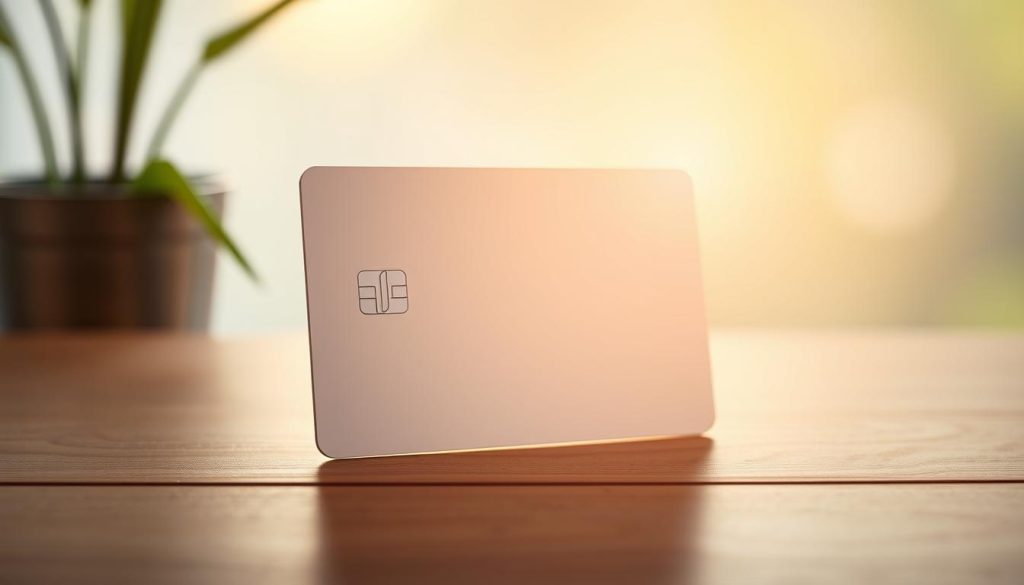
Choosing the Right Card for Your Journey
Selecting the right travel money card depends on your needs. Look for cards with low or no foreign transaction fees, competitive exchange rates, and support for multiple currencies. Popular options like Wise, Chime, and Monzo are known for their user-friendly features and cost efficiency.
Here’s what to consider when choosing a card:
- Exchange rates: Opt for cards that use the mid-market rate to save on conversion costs.
- Fees: Compare annual fees, ATM withdrawal charges, and reload costs.
- Supported currencies: Ensure the card supports the local currency, such as the Rwandan Franc.
Security Features and Benefits
Travel money cards come with advanced security features to protect your funds. Two-factor authentication, real-time transaction notifications, and card freezing options are standard. These features help you monitor your spending and respond quickly to any suspicious activity.
Here’s a comparison of popular travel money cards:
| Card | Key Features | Fees |
|---|---|---|
| Wise | Mid-market rates, multi-currency support | Low conversion fees |
| Chime | No foreign transaction fees, mobile app | Free ATM withdrawals |
| Monzo | Real-time notifications, budgeting tools | No monthly fees |
Using a travel money card not only saves you money but also provides peace of mind. With features like spending alerts and easy management through mobile apps, you can stay in control of your finances throughout your journey.
Comparing Popular Travel Money Card Options
Choosing the right travel money card can make your international spending seamless and cost-effective. With options like Wise, Chime, and Monzo, each card offers unique features tailored to different needs. Let’s break down their pros and cons to help you decide which one suits your travel style best.
Wise: Multi-Currency Support
Wise stands out for its multi-currency support, allowing you to hold and exchange over 50 currencies. It uses the mid-market exchange rate, ensuring low conversion fees. This makes it ideal for frequent travelers who need flexibility.
- Key Features: Mid-market rates, multi-currency accounts, and low fees.
- Fees: Free withdrawals up to AUD 350 per month, with a 1.75% fee for larger amounts.
- Best For: Those who travel to multiple countries and need competitive rates.
Chime: No Foreign Transaction Fees
Chime is a great option for avoiding foreign transaction fees. Its mobile app makes managing your money easy, and it offers free ATM withdrawals in the U.S. While it doesn’t support multi-currency accounts, it’s perfect for straightforward spending.
- Key Features: No foreign transaction fees, user-friendly app, and free ATM access.
- Fees: No monthly fees or hidden charges.
- Best For: Budget-conscious travelers who prefer simplicity.
Monzo: Real-Time Notifications
Monzo excels with its real-time transaction notifications and budgeting tools. It’s a prepaid card that supports spending in multiple currencies, making it a versatile choice. Its app also allows you to freeze your card instantly if lost or stolen.
- Key Features: Real-time alerts, budgeting tools, and card freezing.
- Fees: No monthly fees, but ATM withdrawals abroad may incur charges.
- Best For: Tech-savvy travelers who value security and control.
| Card | Key Features | Fees |
|---|---|---|
| Wise | Mid-market rates, multi-currency support | Low conversion fees |
| Chime | No foreign transaction fees, mobile app | Free ATM withdrawals |
| Monzo | Real-time notifications, budgeting tools | No monthly fees |
Understanding the fees and features of each card is crucial. Whether you prioritize low fees, multi-currency support, or real-time alerts, there’s a travel money card that fits your needs. By comparing these options, you can make an informed decision and enjoy a stress-free trip.
Step-by-Step Guide for Ordering Your Travel Card
Ordering a travel card online is quick, secure, and designed for your convenience. Whether you choose Wise, Chime, or Monzo, the process is straightforward and user-friendly. Here’s how to get started.
The Application Process
First, download the app or visit the website of your chosen provider. Create an account by entering your personal details, such as your name, email, and phone number. You’ll also need to verify your identity by uploading a photo of your ID and proof of address.
Next, fund your account. Most providers allow you to link your bank account or use a debit card for this step. Once your account is funded, you can order your physical card. Some providers also offer virtual cards for immediate use.
Here’s a quick breakdown of the steps:
- Download the app or visit the provider’s website.
- Register and verify your identity.
- Fund your account using a bank transfer or debit card.
- Order your physical or virtual card.
Delivery times vary by provider. For example, Wise typically delivers within 7-10 days, while Chime and Monzo may take a similar timeframe. Keep an eye on your email for tracking updates.
Tips for a Smooth Application
To expedite the process, ensure your documents are clear and up-to-date. Use a mobile app for faster verification and account management. Also, check for any promotional offers or referral bonuses that can save you money.
Here’s a comparison of popular travel money card providers:
| Provider | Key Features | Delivery Time |
|---|---|---|
| Wise | Multi-currency support, low fees | 7-10 days |
| Chime | No foreign transaction fees, mobile app | 7-10 days |
| Monzo | Real-time notifications, budgeting tools | 7-10 days |
By following these steps, you’ll have a travel money card ready for your next trip. It’s a simple way to manage your spending and avoid unnecessary fees while abroad.
Managing Currency Conversion and Fees
Navigating currency conversion and fees can be tricky, but with the right knowledge, you can save money and avoid surprises. Whether you’re using a card or carrying cash, understanding how fees work is essential for a smooth travel experience.
Understanding Conversion Charges
Currency conversion fees are applied when you use your card or withdraw money in a foreign currency. These fees can include a percentage of the transaction amount or a flat rate. For example, ATMs in Rwanda may charge between RWF 1,500 and RWF 3,000 per withdrawal.
To minimize extra costs, always check the mid-market exchange rate. This rate is the fairest benchmark for conversion, as it doesn’t include markups. When using ATMs, select “Decline/Without Conversion” to avoid additional fees.
Strategies to Avoid Hidden Fees
Hidden fees can quickly add up, but there are ways to avoid them. Start by reviewing your card’s fee policies before your trip. Look for cards with low or no foreign transaction fees.
- Use ATMs in major cities for better rates and lower fees.
- Track your spending in real time with mobile banking apps.
- Set up notifications to alert you of any unexpected charges.
Choosing the right travel money card can also help. Look for options that use the mid-market rate and offer competitive fees. By planning ahead, you can enjoy a stress-free trip without financial surprises.
Budgeting and Cost-Saving Tips for Your Trip
Smart budgeting can transform your travel experience, helping you save money while enjoying every moment. By planning ahead and making informed choices, you can stretch your budget further and focus on what truly matters—exploring and creating memories.
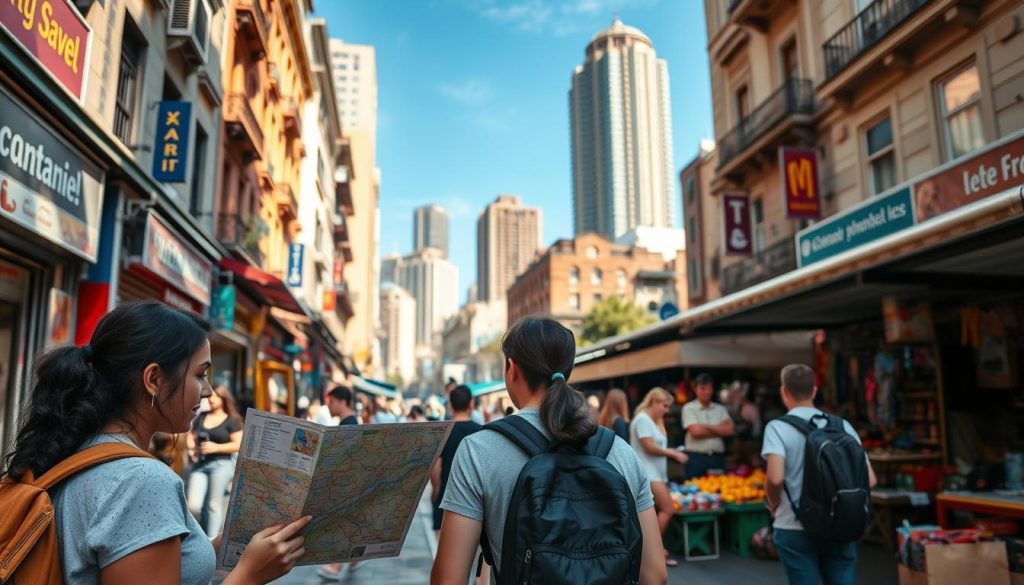
Saving on ATM Withdrawals
ATM fees can add up quickly, but there are ways to minimize them. Start by choosing ATMs affiliated with major banks, as they often charge lower fees. Avoid using ATMs in airports or tourist hotspots, as they tend to have higher charges.
Here are some additional tips:
- Withdraw larger amounts less frequently to reduce transaction fees.
- Check if your bank has international partners to avoid extra charges.
- Use a travel money card for better exchange rates and lower fees.
Local Spending and Tipping Strategies
Understanding local customs can help you save money and avoid overpaying. In many places, tipping is appreciated but not mandatory. Research the tipping culture of your destination to ensure you’re being fair without overspending.
When shopping at local markets, don’t hesitate to negotiate. Polite bargaining is often expected and can lead to significant savings. For meals, consider eating at local eateries instead of tourist-focused restaurants. They often offer authentic cuisine at a fraction of the cost.
Here’s how to make the most of your cash:
- Carry small bills for tipping and small purchases.
- Track your daily spending using a mobile app or journal.
- Combine cash and card use to minimize fees.
By following these tips, you can enjoy your trip without breaking the bank. A little planning goes a long way in making your travel experience both affordable and memorable.
Practical Payment Security Tips in Rwanda
Keeping your financial information secure while traveling is essential for a stress-free experience. Whether you’re using a card or carrying cash, protecting your data ensures your money stays safe. Here are some practical tips to help you stay secure.
Protecting Your Card and Personal Data
Start by enabling two-factor authentication on all your accounts. This adds an extra layer of security, making it harder for unauthorized users to access your information. Use strong, unique passwords for each account to further safeguard your data.
When using mobile wallets like Apple Pay, ensure your device is password-protected. Avoid saving sensitive information on public devices or shared networks. These small steps can prevent unauthorized access to your payment methods.
Preventing Fraud and Skimming
Card skimming is a common issue at ATMs and payment terminals. To avoid this, use machines located in secure, well-lit areas. Cover the keypad when entering your PIN, and regularly check your account for suspicious activity.
- Monitor your card transactions through your phone or banking app.
- Set up alerts for any unusual activity or large withdrawals.
- Freeze your card immediately if you suspect it’s lost or stolen.
Using Virtual Card Numbers
Virtual card numbers are a great way to protect your card during online purchases. These temporary numbers are linked to your account but can’t be used for unauthorized transactions. Many banks and travel money card providers offer this feature.
For added security, keep a backup card in a separate location. This ensures you have access to funds even if your primary card is compromised. Always use secure networks and avoid public Wi-Fi when accessing financial data.
“Taking these precautions not only protects your money but also gives you peace of mind during your travels.”
By following these tips, you can confidently manage your finances and focus on enjoying your trip. A little preparation goes a long way in ensuring a smooth and secure experience.
Conclusion
Managing your finances wisely while traveling ensures a smooth and enjoyable experience. Understanding exchange rates and planning your currency exchange in advance can save you money and reduce stress. Whether you prefer using cash or a card, having both options gives you flexibility for different situations.
Travel money cards like Wise, Chime, and Monzo offer low fees and competitive rates, making them a smart choice for international trips. They also provide added security with features like real-time notifications and card freezing. Using these cards can help you avoid unnecessary charges and manage your spending effectively.
To minimize fees, use ATMs in major cities and always check the mid-market rate. Keep a mix of cash and card payments to handle any situation. By planning ahead and choosing reliable providers, you can enjoy your trip without financial worries.
Review your payment options carefully and feel confident managing your money abroad. With these tips, you’re ready for a safe, enjoyable, and financially savvy journey!
The above is subject to change.
Check back often to TRAVEL.COM for the latest travel tips and deals.
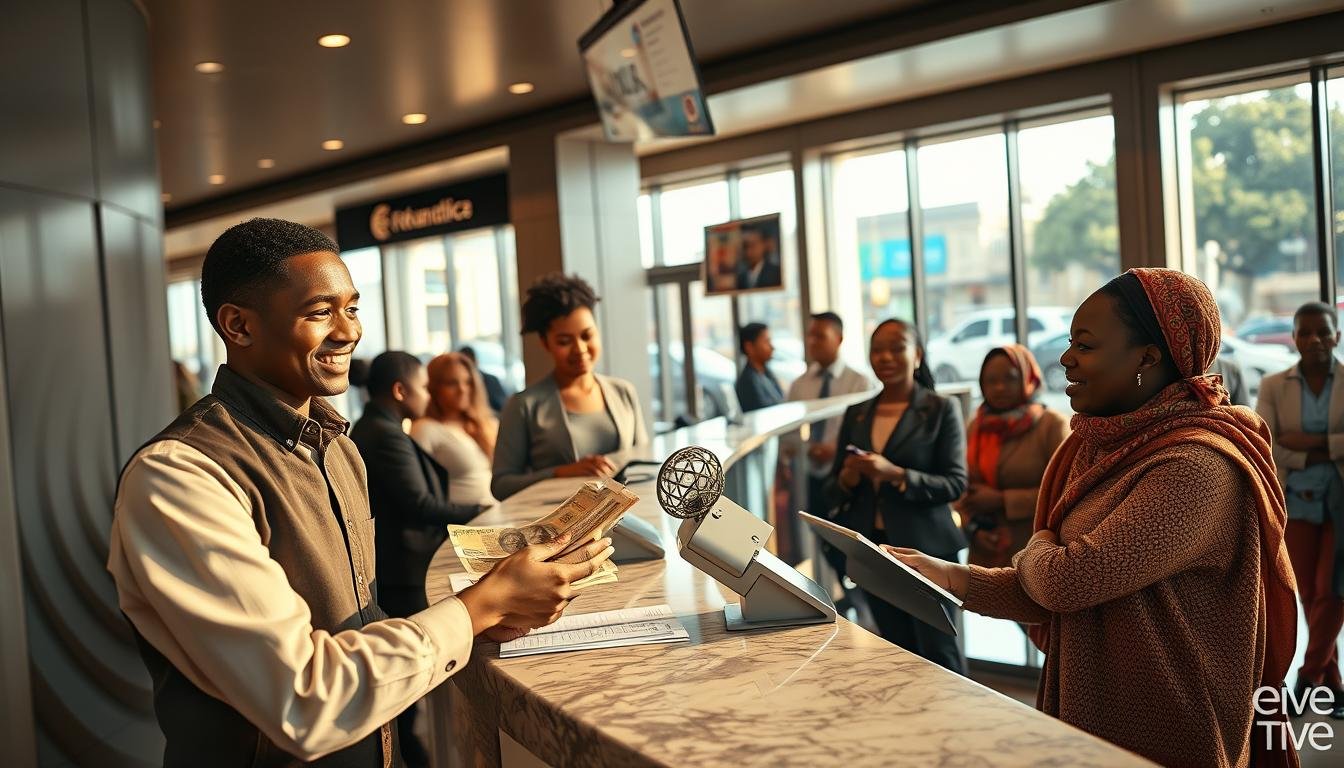





0 Comments